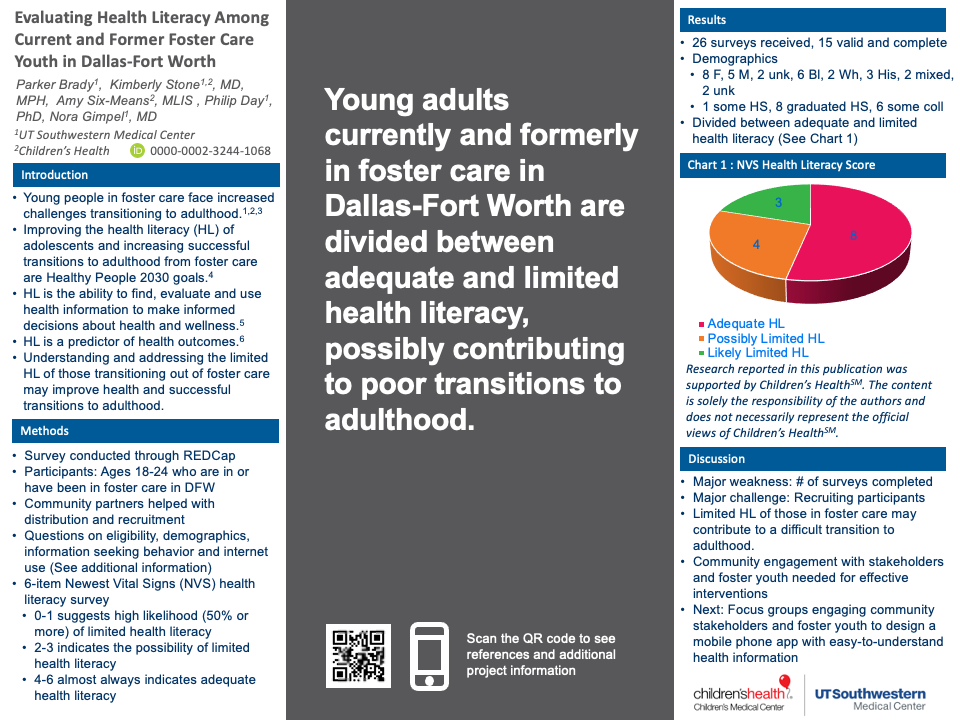SRFP033: Empowering Youth Aging Out of Foster Care: Evaluating Health Literacy Among Current or Former Foster Care Youth in DFW
Parker Brady; Kimberly Stone, MD, MPH, FAAP; Amy Six-Means; Philip Day, PhD; Nora Gimpel, MD
Abstract
Context: Adolescents in foster care and young adults formerly in care (AYAFC) face significant challenges transitioning to adulthood. Healthy People 2030 has identified improving health literacy of adolescents and increasing the success of transitions to adulthood from foster care as public health priorities. Effectively addressing health literacy challenges and transitioning to adulthood for AYAFC requires community stakeholder engagement. A mobile phone app is a possible solution for addressing barriers to a successful transition. Objective: The purpose of this study was to evaluate the health literacy level of young adults currently or formerly in foster care and to understand how this population accesses and evaluates health information in order to better understand the population that we will cocreate an app with. Study Design: Survey study utilizing convenience sampling. Setting and Population Studied: Young people ages 18-24 in foster care or who have formerly been in foster care in the Dallas-Fort Worth area. Participants were recruited using flyers placed in community stakeholder’s local offices. Instrument: A 26-item survey including the validated 6-item Newest Vital Signs health literacy survey, a 3-item demographic survey, and 9 items about internet use and information gathering behaviors. Outcome Measures: The NVS health literacy survey evaluates 3 possible outcomes. A score of 0-1 indicates limited health literacy, a score of 2-3 indicates the possibility of limited health literacy, and a score of 4-6 indicates likely adequate health literacy. Anticipated Results: We anticipate that most individuals that have been in foster care in the DFW area will have limited health literacy or the possibility of limited health literacy. Conclusions: The health literacy of AYAFC in the Dallas-Fort Worth area is generally limited or possibly limited with few that achieved a likely adequate level of health literacy. These findings indicate that there is a substantial need for a solution, such as a well-designed app, to provide access to easy-to-understand resources and personal information for AYAFC to improve successful transitions to adulthood.

Jack Westfall
jwestfall@aafp.org 11/21/2021Wow, great research. Terrific poster and presentation. Thanks for your work.